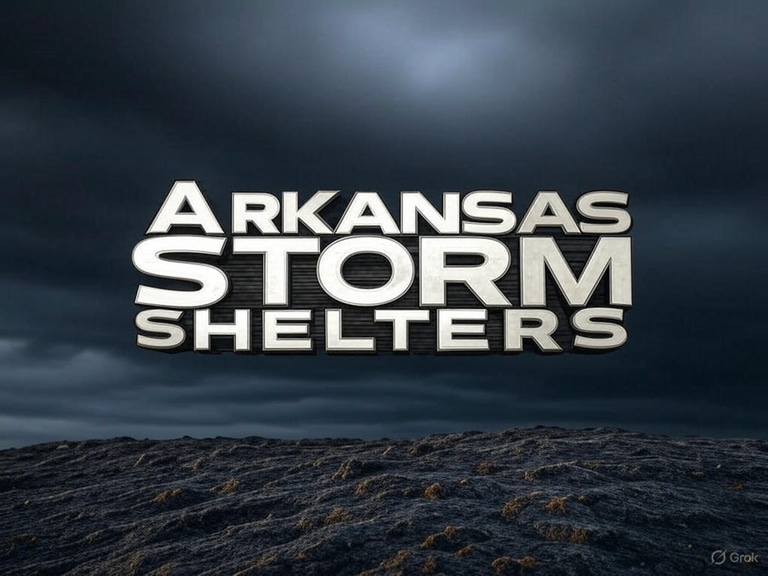Tornado Storm Shelter Contractor Vetting Checklist
Pre-Screening Phase
Initial Contact & Storm Shelter Expertise
Contractor specializes in storm shelters or has dedicated storm shelter division
Demonstrates knowledge of tornado safety requirements and EF-scale ratings
Understanding of local tornado risk and soil conditions
Responds promptly with professional communication
Provides clear timeline for installation (typically 2-4 weeks)
Offers site evaluation and soil testing services
Storm Shelter Specific Qualifications
Valid general contractor license
Specialized storm shelter installation certification
FEMA P-320/P-361 compliance certification
ICC-500 Standard knowledge and compliance
National Storm Shelter Association (NSSA) membership
State-specific storm shelter licensing (where required)
Documentation & Certification Review
Legal & Insurance Requirements
Current general liability insurance (minimum $2M recommended)
Product liability insurance for shelter components
Workers' compensation coverage
Bonding appropriate for project value
Business license verification
Professional liability insurance (errors & omissions)
Storm Shelter Certifications
FEMA P-320 (Residential Safe Rooms) compliance certificate
FEMA P-361 (Safe Rooms for Tornadoes and Hurricanes) certification
ICC-500 (International Code Council Standard) compliance
Third-party testing certifications for shelter components
National Storm Shelter Association certification
Manufacturer authorization certificates (for specific shelter brands)
Technical Expertise Assessment
Storm Shelter Design Knowledge
Understanding of wind load calculations (250+ mph winds)
Knowledge of debris impact resistance requirements
Proper foundation and anchoring system design
Ventilation system requirements and implementation
Door and locking mechanism specifications
Structural engineering consultation capabilities
Installation Expertise
Experience with various shelter types (above-ground, below-ground, garage)
Soil analysis and drainage considerations
Proper excavation and backfill techniques
Concrete pouring and curing expertise
Waterproofing and moisture control methods
Electrical and ventilation system installation
Product & Material Standards
Shelter Component Verification
Shelters meet or exceed FEMA P-320/P-361 standards
ICC-500 compliant shelter design
Third-party tested and certified components
Steel reinforcement meets specified grades
Concrete specifications (minimum 4,000 PSI)
Door systems tested for debris impact resistance
Manufacturer Relationships
Authorized dealer/installer for reputable shelter manufacturers
Access to manufacturer warranties and support
Established supply chain for quality materials
Ability to provide manufacturer specifications
Updated on latest product improvements and recalls
Experience & Track Record
Storm Shelter Portfolio
Examples of similar installations (residential vs. commercial)
Before/after photos of completed installations
Projects completed in similar soil/geographic conditions
Experience with local building codes and permit processes
Track record during severe weather events
Reference Verification
Recent storm shelter client references
Contact references about installation quality and timeline
Verify shelter performance during actual tornado events
Check on warranty service and responsiveness
Confirm proper permitting and inspection completion
Ask about cleanup and site restoration quality
Regulatory Compliance
Building Codes & Permits
Knowledge of local building codes and requirements
Handles permit application process
Coordinates required inspections
Understands setback and easement requirements
Complies with utility location and clearance rules
Familiar with HOA restrictions and approval processes
Safety Standards Compliance
OSHA safety training and compliance
Proper excavation safety procedures
Confined space entry protocols (for underground shelters)
Equipment safety certifications
Emergency response procedures during installation
Financial & Contract Evaluation
Pricing & Payment Structure
Detailed written estimate with itemized costs
Competitive pricing for comparable quality
Reasonable payment schedule (avoid large upfront payments)
Clear change order procedures
Warranty terms clearly specified (minimum 5 years structural)
Separate pricing for optional features (lighting, seating, etc.)
Contract Specifications
Written contract with detailed specifications
Shelter dimensions and capacity clearly stated
Material specifications and grade requirements
Installation timeline with weather contingencies
Permit responsibility clearly assigned
Site restoration and cleanup responsibilities
Performance testing requirements
Critical Red Flags - Storm Shelter Specific
Avoid These Warning Signs
AVOID: Claims of "tornado-proof" (no shelter is 100% tornado-proof)
AVOID: Shelters not meeting FEMA P-320/P-361 standards
AVOID: No third-party testing certifications
AVOID: Significantly cheaper than competitors (may compromise safety)
AVOID: Cannot provide engineering specifications
AVOID: No manufacturer authorization or warranty
AVOID: Unwillingness to obtain proper permits
AVOID: No liability insurance or bonding
Site Evaluation Requirements
Pre-Installation Assessment
Soil analysis and testing
Utility location and marking services
Drainage and water table evaluation
Access route planning for equipment
Setback compliance verification
Foundation design based on soil conditions
Installation Monitoring
Proper excavation depth and dimensions
Correct concrete mix and pouring procedures
Proper reinforcement placement
Adequate curing time before backfill
Waterproofing application and testing
Ventilation system installation and testing
Post-Installation Verification
Quality Assurance Checklist
Final inspection by certified inspector
Door operation and sealing test
Ventilation system functionality test
Structural integrity verification
Proper drainage around shelter
Site restoration completion
All permits closed out properly
Documentation Package
Warranty documentation and registration
FEMA compliance certificates
Engineering specifications and drawings
Installation photos and documentation
Operating and maintenance instructions
Emergency contact information
Annual inspection recommendations
Storm Shelter Specific Questions for References
Performance & Reliability Questions
Has the shelter been tested during actual severe weather?
Were there any issues with water intrusion or moisture?
How well does the door seal and operate?
Is the ventilation system adequate and quiet?
Were permits obtained and inspections completed properly?
How was the site restored after installation?
Has warranty service been needed, and how was the response?
Would you recommend this contractor to family members?
Emergency Preparedness Resources
Important Contacts During Installation
Contractor Emergency Contact: _______________
Project Manager: _______________
Local Building Department: _______________
Utility Emergency Services: _______________
Insurance Company: _______________
Soil Testing Company: _______________
Post-Installation Resources
Shelter Manufacturer Support: _______________
Annual Inspection Service: _______________
Warranty Service Contact: _______________
Local Emergency Management: _______________
Additional Storm Shelter Resources
Verification Websites
FEMA Safe Room Resources: fema.gov/safe-rooms
National Storm Shelter Association: nssa.cc
ICC-500 Standard Information: iccsafe.org
State Licensing Boards: Check your state's contractor licensing website
Better Business Bureau: bbb.org
Storm Shelter Standards Reference
FEMA P-320: Taking Shelter From the Storm (Residential Safe Rooms)
FEMA P-361: Safe Rooms for Tornadoes and Hurricanes
ICC-500: Standard for the Design and Construction of Storm Shelters
ASCE 7: Minimum Design Loads for Buildings and Other Structures
© 2025. All rights reserved.
ARStormShelters.com is your trusted resource for staying safe during severe weather. We offer comprehensive information about tornado shelters and help connect you with reputable installers and providers throughout Arkansas. Please note, we do not sell or install storm shelters ourselves.
